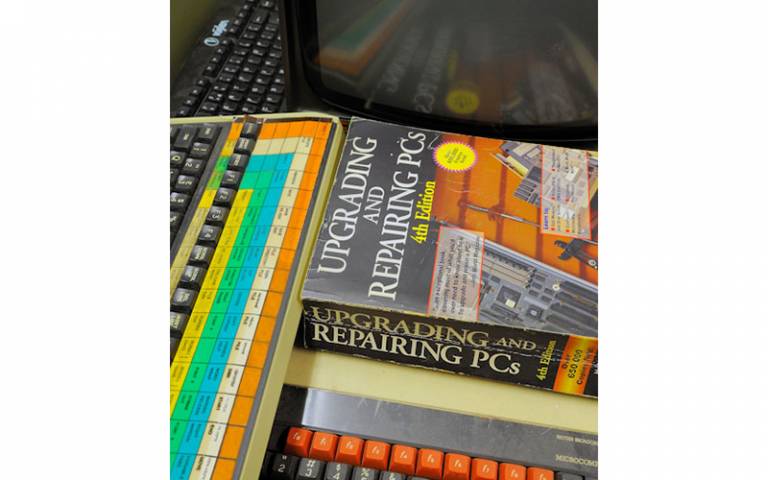UCL ISH April Guest Lecture 'Preserving the Bits: Digital Preservation within Heritage Science'
19 April 2018, 5:45 pm–8:00 pm

On Thursday 19 April, UCL ISH will be hosting a Guest Lecture to be delivered by Julian Richards, Professor of Archaeology at the University of York.
Event Information
Open to
- All
Availability
- Yes
Organiser
-
UCL Institute for Sustainable Heritage
Location
-
G01, Central House, University College London, 14 Upper Woburn Place, WC1H 0NN
Abstract
The use of computers in heritage research has become routine and archaeologists are generating digital data in unprecedented volumes and varieties of formats. Such data is also increasingly born digital in laboratories, remote sensing, GIS, and 3D modeling software, with no paper equivalent. At the same time there is increasing worldwide emphasis on the importance of Open Data, and requirements that researchers should make the data sets which underlie their interpretations, and the publications themselves, freely available to the wider public.
However, this data is fragile and needs active curation and full documentation if it is to survive. In the UK, the Archaeology Data Service (ADS) has been working for over 20 years to ensure long-term preservation and access to archaeological data. It now disseminates over 1.3 million metadata records to the archaeology of the British Isles, over 45,000 unpublished fieldwork reports, as well as over 1400 rich research archives. All of these are freely available online, and the ADS is working with international partners to promote broader research e-infrastructures for archaeology.
This presentation will discuss the issues of permanent data preservation, as well as the opportunities to provide unparalleled access.
Biography
Julian Richards is Professor of Archaeology at the University of York. He is Director of the Centre for Digital Heritage, Director of the Archaeology Data Service, and, since October 2013, Director of the White Rose College of the Arts and Humanities. His direct involvement in archaeological computing began in 1980 when he started his PhD research studying pre-Christian Anglo-Saxon burial ritual using the computing power of an ICL mainframe and an early Z80 micro-computer. In 1985 he co-authored the first textbook in archaeological computing for Cambridge University Press, and has subsequently written numerous papers and edited a number of books on the applications of information technology in archaeology. Since 1996, he has been Director of the Archaeology Data Service and Co-Director of the e-journal Internet Archaeology. He is also a leading Viking specialist and his archaeological research has focused on the impact of the Vikings on Anglo-Saxon England. He is currently working on the Viking Great Army of the 860s and 870s, and particularly their winter camp at Torksey in Lincolnshire.
 Close
Close

